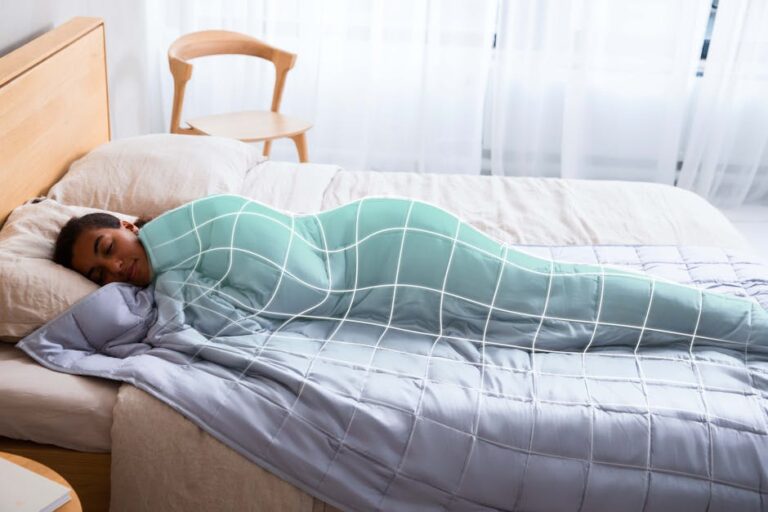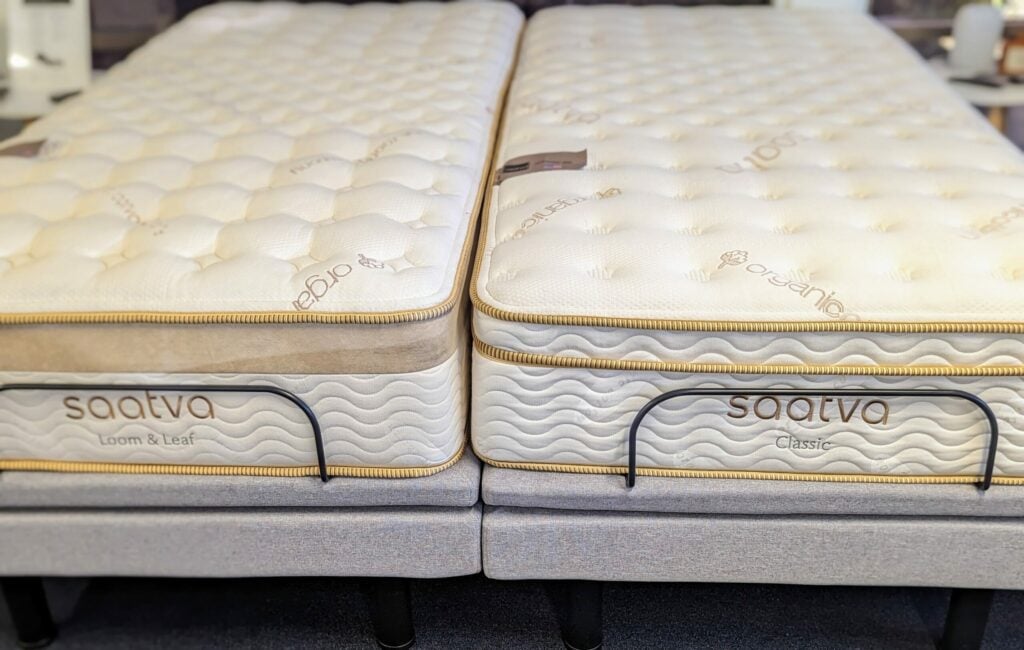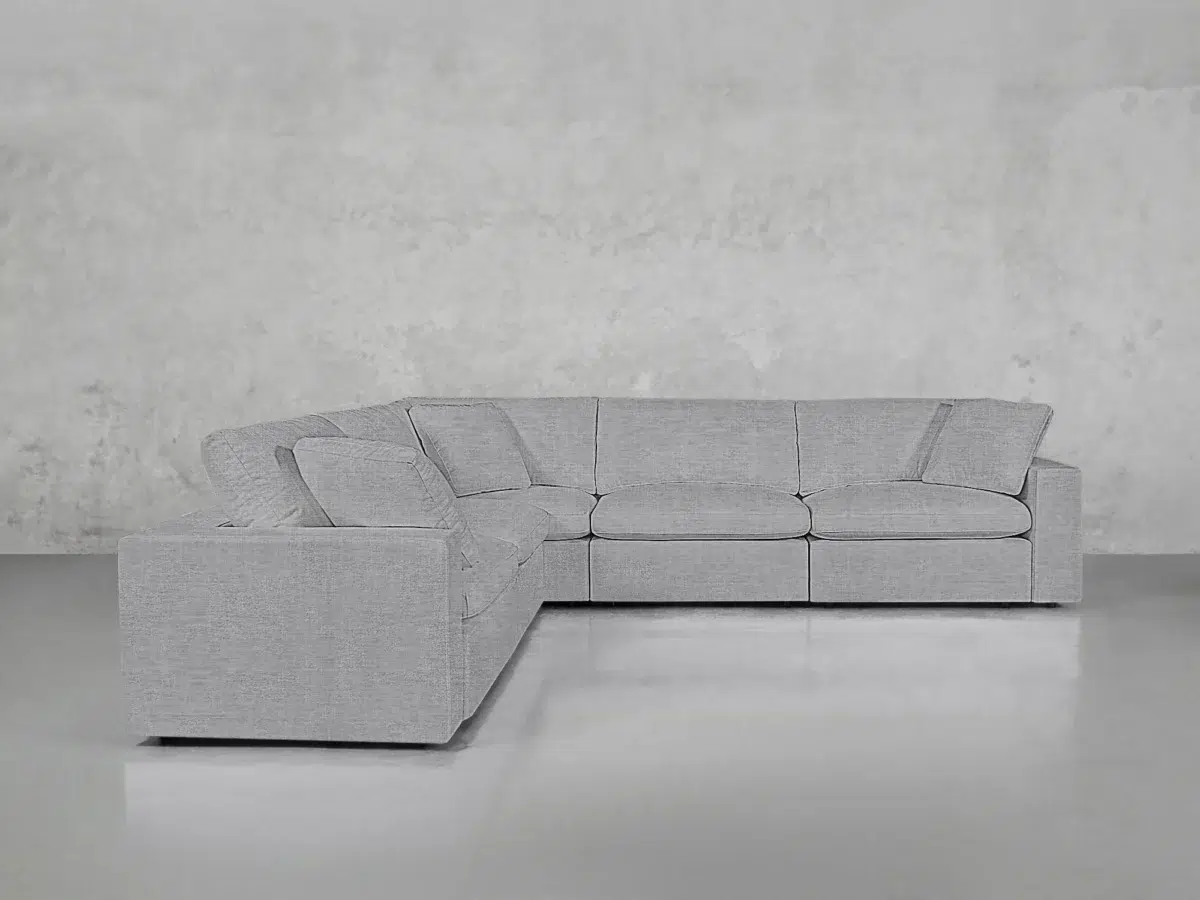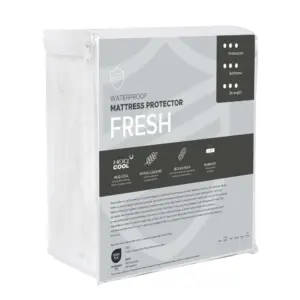The Science Behind Weighted Blankets: Do They Ease Anxiety?
Do weighted blankets help with anxiety? The answer is a resounding yes. Research shows that these therapeutic tools can significantly alleviate anxiety symptoms by providing a calming, comforting pressure similar to a warm hug. This sensation, referred to as deep pressure therapy, not only reduces anxiety and enhances relaxation but also promotes improved sleep quality. In this article, we will delve into the science behind weighted blankets and their proven benefits.
What Are Weighted Blankets and How Do They Function?
Weighted blankets have surged in popularity, especially among those seeking relief from anxiety and sleep disturbances. Typically, they range from 5 to 30 pounds and employ a method known as deep pressure touch (DPT) to recreate the soothing effects of being embraced. By applying gentle, consistent pressure, these blankets activate the body’s parasympathetic nervous system, which is essential for relaxation and stress reduction. While additional research is still needed, preliminary findings suggest that weighted blankets can be effective for individuals facing anxiety-related challenges.
I’m Ben Trapskin, the creator of Yawnder, and a passionate advocate for better sleep. After overcoming my own struggles with sleep, I delved into the world of sleep aids, including weighted blankets. My goal is to shed light on whether these products can genuinely assist those grappling with anxiety.
How Weighted Blankets Work
Weighted blankets are more than just comforting covers; they are designed to provide therapeutic benefits through deep pressure touch. Imagine the sensation of a gentle hug or a firm squeeze — that’s the essence of DPT, a critical component in how these blankets function.
Deep Pressure Touch Explained
Deep Pressure Touch is a type of tactile sensory input that applies steady, even pressure across the body. This sensation calms the nervous system, much like the comfort of being swaddled as an infant. Such an effect may lower stress and anxiety levels significantly. The blankets achieve this by evenly distributing weight, often utilizing materials such as glass beads or plastic pellets, which can replicate the calming effects typically experienced when being held.
The Role of Serotonin
The benefits of DPT extend beyond mere physical sensations. This pressure also stimulates the release of serotonin, a neurotransmitter crucial for mood stabilization and overall well-being. Elevated serotonin levels contribute to feelings of calmness and happiness, offering yet another reason why individuals report reduced anxiety when using a weighted blanket.
Activation of the Parasympathetic Nervous System
The parasympathetic nervous system acts as the body’s natural brake, slowing the heart rate and fostering relaxation. Weighted blankets facilitate the activation of this system, enabling the body to enter a restful state, particularly beneficial at night for quality sleep. Engaging this system can counteract the body’s stress response, lowering cortisol levels, the hormone responsible for stress, and alleviating anxiety symptoms.
Do Weighted Blankets Help with Anxiety?
Weighted blankets are not merely a comfort item; they can be transformative for those seeking relief from anxiety. Their effectiveness hinges on their ability to calm the mind and body through deep pressure touch.
Anxiety Reduction
Anxiety often manifests as rapid heartbeats, racing thoughts, and muscle tension. Weighted blankets can provide that much-needed gentle pressure akin to a reassuring hug, signaling the body to relax. Many users report a significant improvement in the physical symptoms of anxiety, and studies indicate that they can enhance sleep feel more at ease.
Calming Effects Beyond Comfort
The soothing effects of weighted blankets extend beyond physical comfort. Utilizing them encourages the release of serotonin, the feel-good chemical in the brain. When serotonin levels rise, individuals may find themselves better equipped to handle stress and anxiety, promoting a sense of peace and stability.
The Power of Serotonin
Beyond the immediate calming effect, weighted blankets can foster long-term mental health improvements. By boosting serotonin levels, they aid in better mood regulation essential for managing anxiety, while also potentially lowering cortisol, further alleviating stress.
Benefits Beyond Anxiety Relief
Weighted blankets are versatile and offer additional advantages beyond anxiety management.
Improved Sleep Quality
Quality sleep is crucial for overall health, yet many struggle to achieve it. Weighted blankets can enhance sleep by promoting melatonin production, the hormone responsible for regulating sleep. Research from the University of Gothenburg found that participants suffering from insomnia experienced longer and better-quality sleep when using a weighted blanket. The gentle pressure can also minimize nighttime movements, allowing for uninterrupted slumber.
Sensory Therapy
Individuals with sensory processing disorders, such as autism, may find weighted blankets especially beneficial. The deep pressure stimulation they provide can help soothe an overactive sensory system. Children who may be apprehensive about being touched in certain situations often find solace in the pressure of these blankets. Furthermore, studies have shown that weighted garments reduce fidgeting and improve focus for those with ADHD.
Chronic Pain Relief
For people living with chronic pain, weighted blankets may serve as a therapeutic option. The pressure can mimic massage therapy, potentially alleviating discomfort. While specific studies on weighted blankets and chronic pain are limited, the principles of deep pressure touch suggest they might be helpful for conditions such as fibromyalgia or arthritis.
Who Should Avoid Weighted Blankets?
While weighted blankets can offer numerous benefits, they’re not appropriate for everyone. Here are some critical considerations for safety.
Medical Conditions
Individuals with certain medical conditions, such as obstructive sleep apnea or asthma, should consult a healthcare provider before using a weighted blanket, as the pressure might hinder their ability to breathe comfortably during sleep. Those with claustrophobia may also find the snugness of these blankets triggering their anxiety.
Safety Considerations
Pregnant women should avoid weighted blankets, as the additional weight may cause discomfort. For infants and toddlers under the age of three, using a weighted blanket can pose a suffocation risk. Always consult a pediatrician before introducing a weighted blanket to young children. Older adults with mobility issues might also find lighter options more comfortable to manage.
Age Restrictions
Choosing the right weight and size is essential based on age and body weight. For kids, a blanket should ideally weigh 5-10% of their body weight. Meanwhile, lighter options, ranging from 5 to 8 pounds, may be more suitable for elderly individuals.
Frequently Asked Questions About Weighted Blankets
Do weighted blankets actually help with anxiety?
Yes, weighted blankets can be highly beneficial for individuals dealing with anxiety. They use deep pressure therapy (DPT) to mimic comforting physical sensations, which can effectively promote relaxation.
How heavy should a weighted blanket be for anxiety?
The ideal weight of a weighted blanket typically is about 10% of your body weight. If you weigh 150 pounds, a 15-pound blanket is generally recommended. This weight strikes a balance between providing soothing pressure and ensuring comfort.
Is it okay to use a weighted blanket every night?
For most people, using a weighted blanket nightly is safe and can improve sleep quality. However, those with specific medical conditions should consult with a healthcare provider for tailored advice. Discontinue use if any discomfort arises, especially for children, pregnant women, and older adults.
Conclusion
At Yawnder, we’re committed to helping you discover optimal sleep solutions. Weighted blankets have become increasingly recognized for their effectiveness in mitigating anxiety and improving sleep quality. By leveraging deep pressure therapy, they can soothe the nervous system, offering a sense of security and relaxation.
Selecting the right weight and consulting healthcare professionals for personalized advice are essential for maximizing benefits. For more information and to explore our carefully curated selection of top-rated weighted blankets, visit our weighted blanket page.
When quality sleep is paramount for your well-being, Yawnder stands as your trusted partner in finding the right sleep products. Sweet dreams await!

















